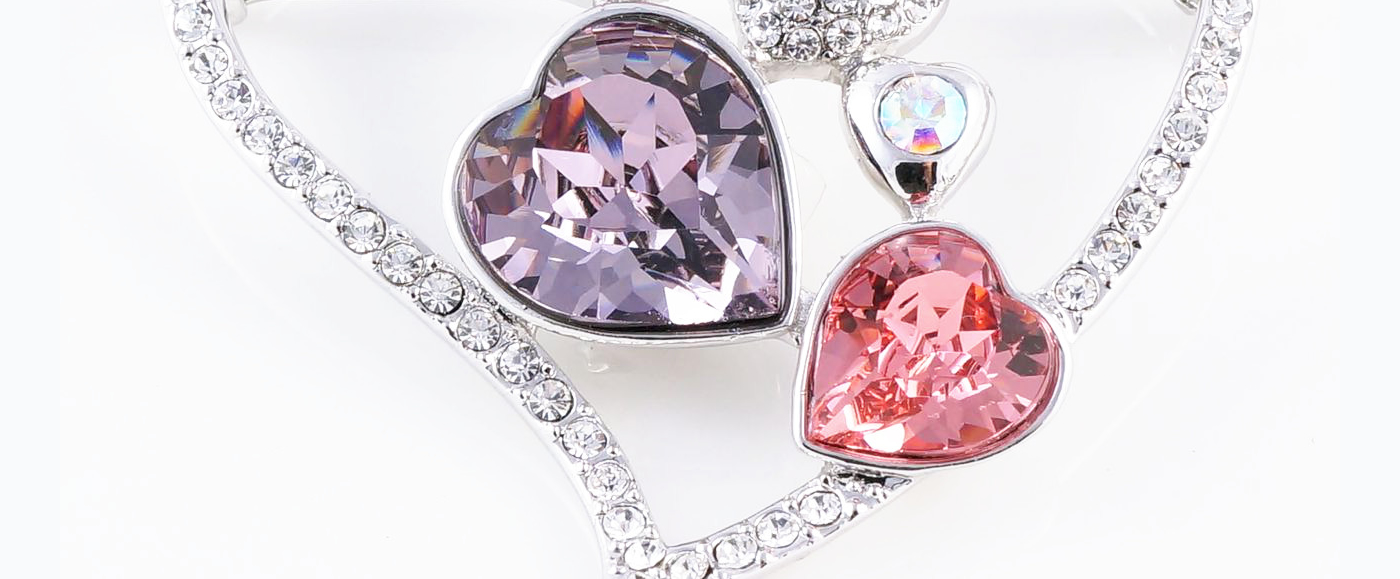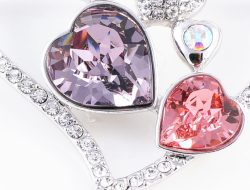Difference Between Swarovski Crystals and Swarovski Elements – Swarovski (pronounced “swarovski”) is a company known for its stunning crystals in the form of sculptures, finished jewelry, beads, and jewelry components. The company’s patented technology produces high-quality crystals with beautiful luster and luster. Even though there are still many types of crystal beads and other jewelry components on the market, Swarovski is still known as a producer of the best quality crystals in the industry.
Difference Between Swarovski Crystals and Swarovski Elements
swarovskijewelry – Daniel Swarovski (aka David Swartz) is the son of an Austrian Bohemian glass cutter. So it is not surprising that he developed great skills in making and cutting glass. Swarovski uses quartz, sand and minerals to make its highly sparkling glass, but the exact proportions of these raw materials remain a trade secret. In 1892, he invented and patented a new glass cutting machine that used the power of water to cut crystal glass.
This allows the crystal to be cut more precisely than even the most experienced and skilled glass cutter can do by hand. Bicorn crystal beads are one of Swarovski’s most famous series. Both sides are cut into a diamond shape, giving it a very faceted appearance and lots of shine.
Swarovski is now a fifth-generation family-owned company with more than 25,000 employees.
Swarovski Brand
The Swarovski brand consists of two main parts. One is the production and sale of crystals and loose elements to various industries, the other is the production of precision-cut crystals for jewelry, sculpture and home decoration.
In addition to finding better ways to cut glass, the Swarovski family also developed tools and processes to perfect the glass they cut.
In 1956, Swarovski collaborated with Christian Dior to develop the “Aurora” effect (known in the jewelry industry as the “AB” effect). The AB effect gives the crystal a sparkling rainbow light, making it more sparkling and unique.
Baca Juga : Swarovski Explores the Versatility of Crystal Jewelry
In 1977, Swarovski introduced a jewelry collection including watches and rings. Swarovski crystals were soon featured in the fashions of top designers such as D&G, Chanel, and Louis Vuitton.
In 1995, Swarovski opened a museum in Austria, showcasing Swarovski’s extensive collection.
Swarovski also created a star-shaped crystal measuring 2.74 meters in diameter and weighing 255 kilograms in 2004, which has since adorned the top of the Rockefeller Center Christmas tree in New York every year.
Swarovski Elements
Swarovski Element is the brand name for loose Swarovski crystals used in the fashion, jewelry and accessories industries. Genuine Swarovski crystals are used in products designed and produced by other manufacturers and labeled “Made with Swarovski Elements”.
Maintenance
Jewelry made with Swarovski crystals should be treated like any other fine jewelry. Do not expose your crystals to water, chemicals, or rough treatment while working or exercising. Use only mild detergent, water and a soft cloth to clean and polish your Swarovski jewelry and crystals. Store your Swarovski jewelry to avoid scratches.
If you use Swarovski crystals to make jewelry, store them in their soft pouch or original packaging to prevent the crystals from chipping or scratching. Be careful when placing crimp beads near Swarovski crystals, as they may break.
Baca Juga : Pilihan Inspirasi Outfit 17 Agustus
How to find out genuine Swarovski crystals
There are several ways to find out whether Swarovski crystals are genuine or imitation. Some of them can be identified just by looking at the crystal and the packaging, while others require looking at the crystal through a gemstone glass to see the details of the crystal.
There should be no air bubbles in the crystal. Swarovski Crystals
has a brilliant luster that cannot be compared with imitation crystal. Test them side by side and you’ll see the difference. Swarovski Crystals
are machine made, so the size and cut are the same.
There is no difference in the color of crystals belonging to the same color group.
A sure sign of a fake is the presence of streaks or an oily sheen on the surface of the crystal.
The package must be labeled “Swarovski”.
Swarovski crystals are sold as loose stones, not strings, except for Swarovski pearls.


